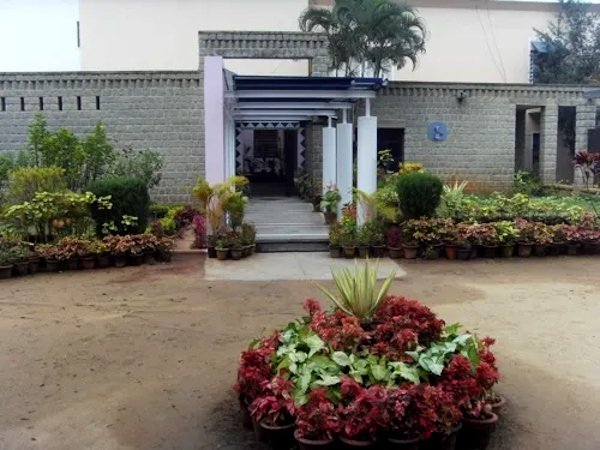An agreement has been signed between Jawaharlal Nehru Centre for Advanced Scientific Research (JNCASR), an autonomous institute of the Department of Science and Technology (DST) and Breathe Applied Sciences, a company incubated at JNCASR for transfer of technology based on lab-scale research on reducing CO2 to methanol and other useful chemicals and fuels.
The research was carried out by Prof. Sebastian C Peter and his group from the New Chemistry Unit at JNCASR. The startup company Breathe was started from the generous funding from DST Nano Mission Project and will focus on scaling up the technology to the pilot level and then commercialization.
While signing the MoU on the occasion of world environment day Prof. G. U. Kulkarni, President, JNCASR said that the institute was happy to incubate the startup in its new campus, Chamundi. “The Breathe team(Prof. Sebastian Peter, Prof. Umesh Waghmare and Dr Rakshith Raghavan) over the last few years has undertaken several translational activities, participated in global competitions, and has several accomplishments to its credit. I wish all success to the startup,” he added.
Prof. Sebastian C. Peter, one of the Founder Director, Breathe Applied Sciences Pvt. Ltd said that the milestone has been achieved from the initial research activities on the CO2 reduction and with the guidance and encouragement received from Prof. C. N. R. Rao, generous funding of Technical Research Centre, JNCASRand various schemes of the DST includingSwarnajayanti Fellowship as well as funds received under Nano Mission project.
“In the pilot mode, the current capacity of CO2 conversion is 300 kg per day, which can be scaled upto 500 tons in an industrial scale. It will take almost a year to reach the level of industrial production. Companies like Tata Steel, and Coal India Limited are in discussion with us for potential use of our developed technology soon,” he added.
The event was attended by Bharat Ratna Prof. C. N. R. Rao, Prof. G. U. Kulkarni, President, JNCASR, Prof. Chandrabhas Narayana, Dean, Rand D, Mr. Joydeep Deb, Administrative Officer, JNCASR, Founding Directors – Prof. Sebastian C. Peter and Prof. Umesh V. Waghmare and Members of Technical Research Centre, Faculty of New Chemistry Unit and other staff and officers from JNCASR.
The MOU will help in smooth translation of the research in the area of CO2 reduction to useful chemicals and fuels from the laboratory scale to pilot scale economically. It will highlight the scientific contribution of a research institute translating to the industry to solve the problems associated with renewable energy and environmental pollution. It will also help in developing an indigenous technology in line with government policy.
“Conversion of CO2 to clean fuels such as methanol and other useful chemicals on scale with cost-effectiveness is the holy grail of science to address sustainable development, environmental and climate. The developments at JNCASR is an extraordinary example of converting cutting-edge science into technological opportunities,” said Prof Ashutosh Sharma, Secretary, DST.
The scientific activities which have been agreed upon as part of the MoU are the development of efficient catalysts for the conversion of CO2 to methanol and other chemicals, improvisation of the process engineering to enhance the production of chemicals and fuels from anthropogenic CO2 generated from various sources including coal and natural gas power generation sectors, steel industry, cement industry, and chemical industries and integrating multiple components involved in the CCUS (Carbon capture, utilization, and sequestration) to develop a complete solution for the environmental issues due to global warming.
Source: PIB
Image Courtesy: CollegeDuniya
You may also like
-
New Heat-Based Approach To Cancer Treatment Can Reduce Chemotherapy Doses
-
Scientists Take A Major Step Towards Unification Of Classical & Quantum Gravity
-
India Graphene Engineering and Innovation Centre (IGEIC) Under the Vision of Viksit Bharat@2047 Launched
-
New High-Performance Gas Sensor can Monitor Low Level Nitrogen Oxides Pollution
-
Antidepressant Drug can be Repurposed for Treating Breast Cancer
